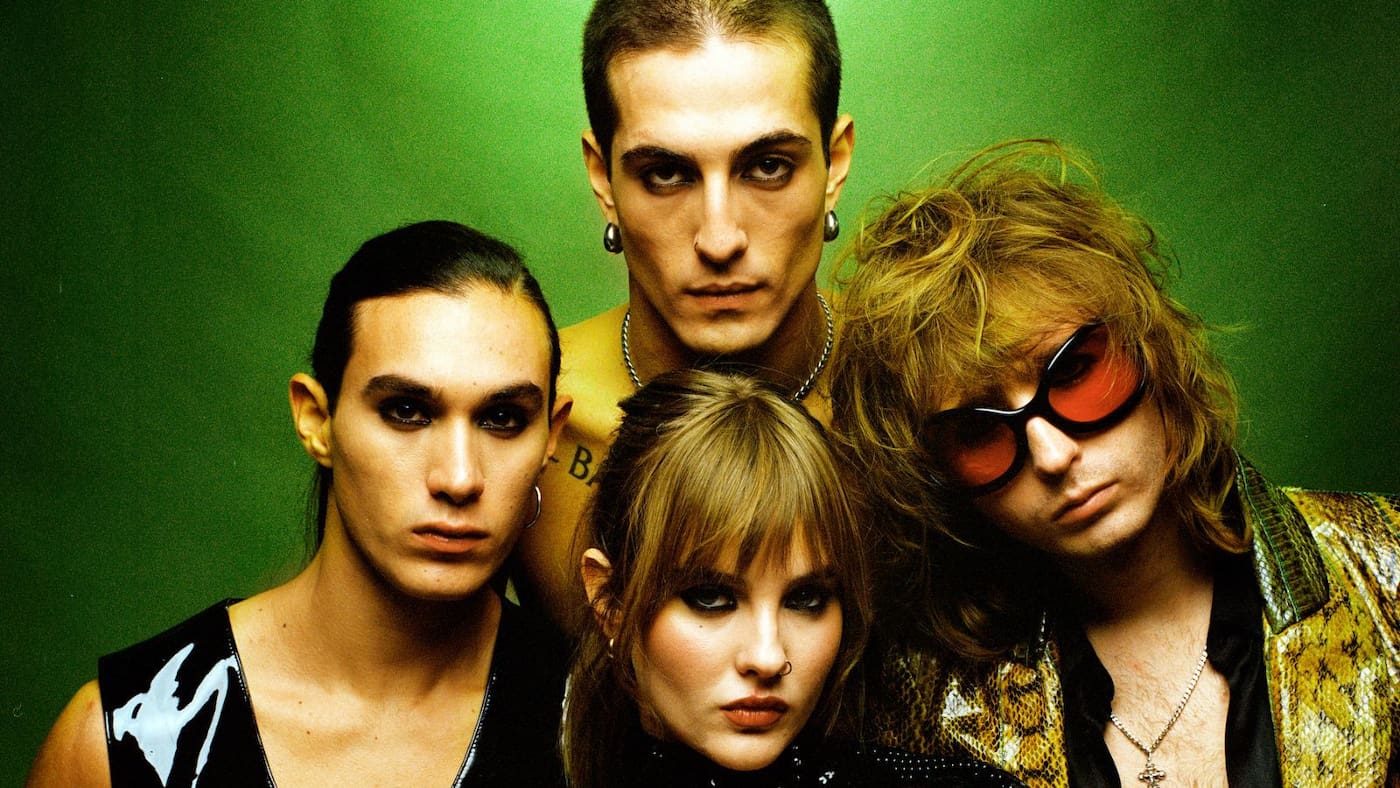20 Essential Italian Songs of the Golden Era: 1950s and 1960s
A quick guide to Italy’s flamboyant music scene of the “Dolce Vita” period through a selection of truly iconic songs

Gianni Morandi at the Cantagiro Festival in 1966 (photo courtesy of Rai)
Italian music of the 50s and 60s was a cultural phenomenon that captured the hearts of the Italians. During this time, Italian songs were heavily influenced by genres like jazz, swing, and rock and roll, which led to a unique blend that was both traditional and modern.
Many Italian musicians skyrocketed to fame during this era, with many of their songs becoming classics that are still popular with people of all ages today. It was a golden era for Italian music and solidified Italy’s place in the world of music.
20 classic Italian songs
Nel blu, dipinto di blu and Meraviglioso by Domenico Modugno
One of the most iconic songs of this period is Nel blu, dipinto di blu, better known as Volare, by Domenico Modugno. Released in 1958, it became an instant hit and a worldwide success. The song’s catchy melody and Modugno’s powerful voice made it an enduring classic and a symbol of Italian music.
Another masterpiece by Modugno is Meraviglioso, a song that showcases the singer’s exceptional vocal abilities and emotional depth.
Come prima by Tony Dallara
Another significant song from this period is Come prima by Tony Dallara. Considered one of the most representative songs of the 50s, this song tells a story of love and passion with its memorable melody and lyrics. It quickly became a classic of Italian music and was covered by several artists worldwide.
Tintarella di luna and Se telefonando by Mina
Mina was a prominent artist of the 50s and 60s, and two of her most important songs were Se telefonando and Tintarella di luna.
Se telefonando was released in 1966 and quickly became one of Mina’s signature songs. Its experimental arrangement and orchestration, coupled with Mina’s exceptional voice, made this song a unique and innovative masterpiece.
Tintarella di luna, released in 1959, is another classic of Italian music. Its playful melody and lyrics, and Mina’s vocals, made it an instant hit.
Quando, quando, quando by Tony Renis
Quando, quando, quando by Tony Renis is another iconic song of the period. This romantic ballad tells a story of unrequited love and longing with its beautiful melody, sentimental lyrics, and Renis’ emotional interpretation. The song has been covered by several artists worldwide and remains a classic of Italian music.
St. Tropez Twist by Peppino Di Capri
One of the most iconic songs of the period was St. Tropez Twist by Peppino Di Capri. Released in 1962, the song exudes joy and energy and became an instant hit. The upbeat rhythm captured the essence of the twist, a dance craze that had taken Europe by storm.
24.000 baci by Adriano Celentano
Another hit from this time was 24.000 baci by Adriano Celentano. The song, which translates to “24 thousand kisses”, was performed by Adriano Celentano during the 1961 Sanremo Festival, along with Little Tony, finishing in second place.
During the performance, Celentano caused quite a stir by initially turning his back to the audience, only turning around after the orchestra’s tempo change. It’s a classic Italian song that is still beloved today.
Il mondo by Jimmy Fontana
Il mondo by Jimmy Fontana was a sentimental ballad that took Italy, the United States, and much of Europe by storm in 1965. The song was known for its emotive storyline that explored the idea of lost love and heartbreak. With its powerful lyrics and calming melody that managed to offer listeners a glimmer of hope, Il mondo remains a classic to this day.
Ciao amore, ciao by Luigi Tenco
In 1967, Luigi Tenco released Ciao amore, ciao, which became a symbol of unrequited love. Tenco’s delicate voice and the lyrics which were relatable to many listeners evoked the emotions of a passion that was not mutual.
Sadly, Tenco took his life shortly after the song’s release, making the track a poignant tribute to his legacy.
Sapore di sale by Gino Paoli
Sapore di sale by Gino Paoli was released in 1963 and was an immediate success. The song captured the essence of the Italian seaside and was full of longing and nostalgia for those endless summer days. Memorable lyrics and a hypnotic melody make Sapore di sale one of the most recognisable songs in Italian music history.
Stasera mi butto by Rocky Roberts
In 1966, Rocky Roberts released Stasera mi butto, an upbeat dance track that became a staple in clubs across Italy. The song’s catchy chorus, lively rhythm and energetic pace made it an instant classic, and it’s still a fan favourite today.
Fatti mandare dalla mamma a prendere il latte by Gianni Morandi
Fatti mandare dalla mamma a prendere il latte by Gianni Morandi was a playful song that embodied the carefree spirit of the 60s. The track was released in 1964 and was met with instant success. Its humorous lyrics about getting sent by your mother to buy milk was a relatable and fun experience that endeared Morandi to music fans across Italy.
Nessuno mi può giudicare by Caterina Caselli
Nessuno mi può giudicare by Caterina Caselli was a fearless song about living your life as you please.
Originally, the song was meant for Adriano Celentano, who had recorded a demo of it. However, he later abandoned it and the song then fell into the hands of the authors Pace and Panzeri, who passed it onto a relatively unknown Caterina Caselli.
The bold nature of the song made it a hit across Europe and beyond, earning Caselli a place in Italian music history.
Ma che freddo fa by Nada
Ma che freddo fa by Nada was a song that lamented the changing seasons and the chill of winter. The song’s slow pace, the melancholic melody, and Nada’s sombre tone perfectly captured the mood of the season and signalled a shift in Italian music towards more reflective and introspective themes.
La bambola by Patty Pravo
La bambola by Patty Pravo was a song that discussed the societal expectations of women at the time. The song’s haunting melody and fantastical nature belied the underlying message of female empowerment, which made it an instant feminist anthem across the country.
Non ho l’età by Gigliola Cinquetti
A sentimental tune, Non ho l’età showcased Cinquetti’s sweet voice, and tackled the teenage struggle of falling for someone when you aren’t quite ready for love yet. A sentimental tune with which the singer triumphed both at the Sanremo Festival in 1964 and at the Eurovision Song Contest of the same year, where she represented Italy.
Come te non c’è nessuno and La partita di pallone by Rita Pavone
Come te non c’è nessuno and La partita di pallone by Rita Pavone were two upbeat songs that embodied the fierce spirit and boldness of the 60s. Pavone’s playful personality and lively performances made her a fixture in Italian music and cemented her status as one of the era’s most beloved singers.
Una rotonda sul mare by Fred Bongusto
Una rotonda sul mare by Fred Bongusto is another timeless gem of the 60s. Its upbeat melody, captivating lyrics, and Bongusto’s unique voice make it an excellent representation of Italian music of the time. The song’s nostalgic lyrics evoke memories of summer evenings and passionate love affairs. It has become an enduring classic.

Still cherishing the heritage of old Italian songs
The 50s and 60s produced some of the most iconic songs of Italian music that continue to be celebrated and appreciated to this day. Whether it’s the catchy melody of Nel blu dipinto di blu, the emotional depth of Quando, quando, quando or the experimental arrangements of Se telefonando, these songs have left an indelible mark on Italian music and culture.
Today, they are cherished classics, and continue to inspire new generations of Italian musicians and fans. These songs have stood the test of time and remain beloved among people of all ages, across Italy and beyond.








